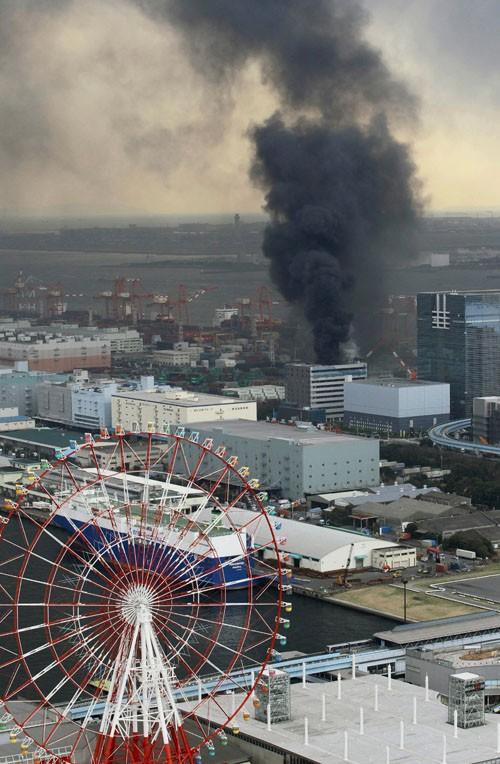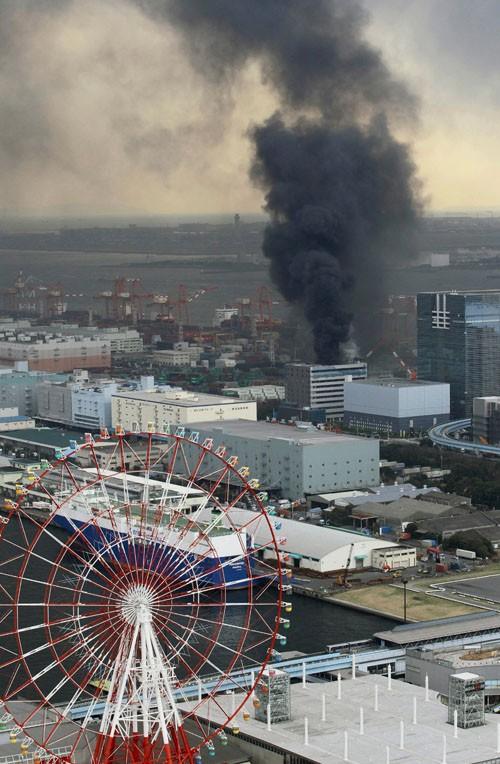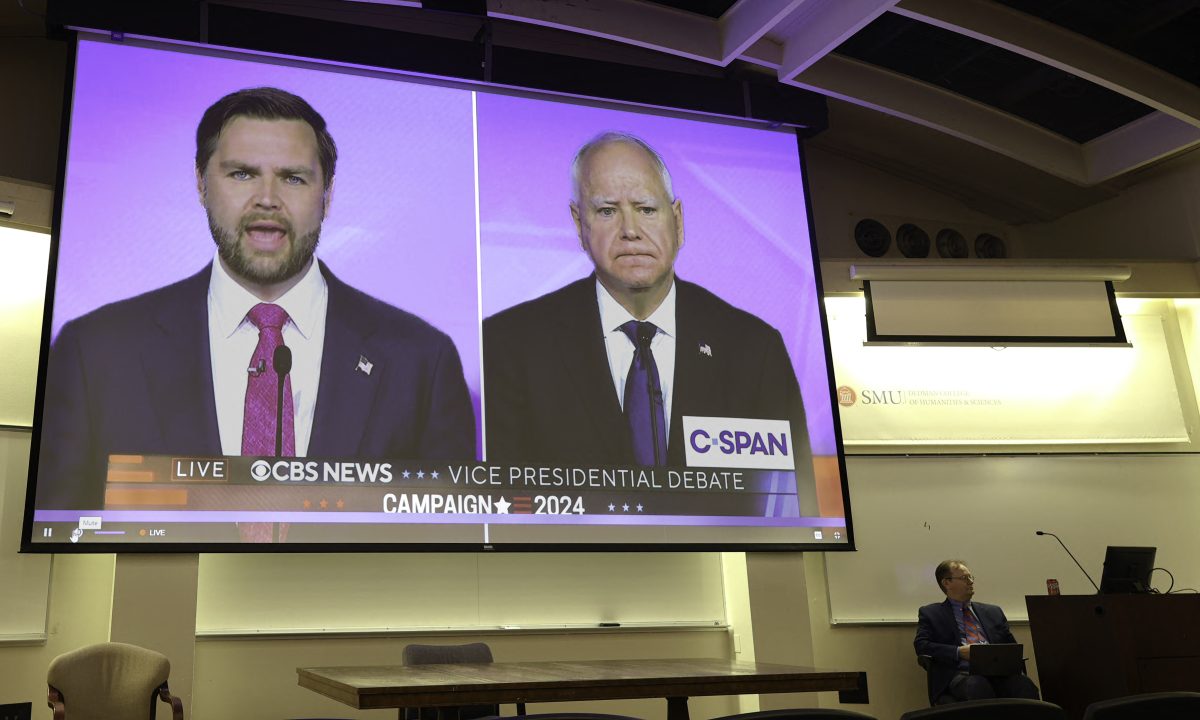
Black smoke rises from a burning building in Tokyo after Japan was struck by a magnitude 8.9 earthquake off its northeastern coast Friday, March 11, 2011. (AP Photo/Kyodo News)
Dedman College Dean William Tsutsui was on a bus outside a major hotel in Tokyo about a week ago when the ground started to shake.
“I lived in Japan in the past so I’ve experienced plenty of earthquakes, but this was an entirely new level of violence in an earthquake,” he said during a phone interview that took place at approximately 3 a.m. Japan-time. “We looked outside the bus and people were running out of the hotel.”
Tsutsui said he looked up at the skyscrapers and “they were swaying like trees in the wind.”
Japan suffered its biggest recorded earthquake to date on March 11 just off its eastern coast. The magnitude-8.9 quake triggered a 23-foot tsunami that has killed thousands of people, caused widespread fires and problems at several nuclear plants.
SMU did not have any students studying abroad in Japan this semester, according to the Study Abroad Office.
Tsutsui had been traveling in Japan with the Japanese American Leadership Delegation, which was seeking to further U.S.-Japan relations.
SMU alumna Ayaka Suzuki (‘10) was at home near downtown Tokyo when the quake hit.
“By a stroke of luck, I had the day off from work and I was at home shopping online with my mother,” she wrote in an email interview. “If I had gone to work, I would have surely been stranded.”
Suzuki has lived in Japan for six years and said that most of her family lives there. Since the big earthquake, she wrote in another email interview that there have been a lot of aftershocks.
“The aftershocks just kept coming and it just kept everyone on edge for days,” she wrote. “Even today, I was eating dinner and there was a M3 in Tokyo, M6 in Ibaraki prefecture. After so many aftershocks and so much shaking, you start to think it’s shaking when it’s not. It’s really quite strange.”
Tsutsui said he was amazed at how quickly everything went back to normal in Japan, which is a couple of hundred miles from Sendai. After the group members made sure they were ok, they went on to the meeting they had scheduled with some business leaders.
“It was only later then that I think everyone began to realize the incredible damage caused by the tsunami in Northern Japan and how much life was going to be disrupted here in Tokyo,” he said.
Tsutsui had planned to fly back to Dallas on Saturday, but wasn’t able to catch a flight until Sunday.
“I was relieved to be home, eager to see my wife (and cat), and ready to get back to my real job as an educator, scholar and administrator,” Tsutsui wrote on the SMU Adventures blog. “But I also felt a certain guilt that I could just pack up, hop on a plane, and sleep in a safe, unshaking bed when so many in Japan had no option but to endure ongoing aftershocks, rising deprivation, and the threat of a nuclear catastrophe.”









